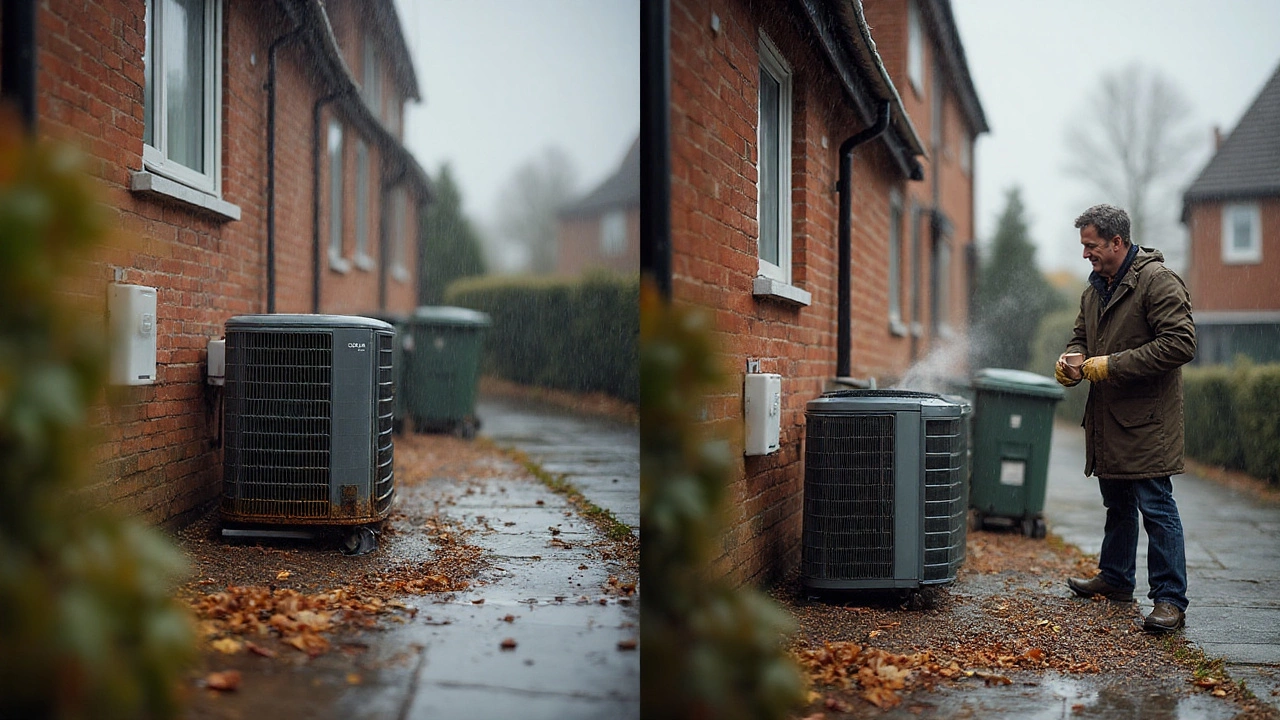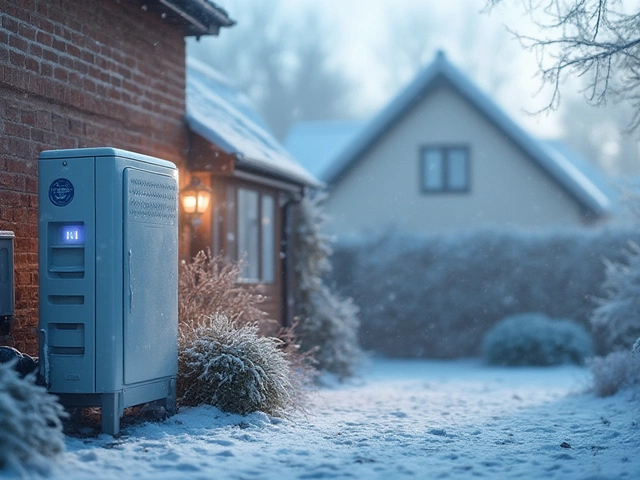If you’ve heard the term "ground source heat pump" and wonder if it’s right for your Bognor Regis home, you’re not alone. It’s basically a system that pulls heat from the ground to warm your house in winter and can reverse to cool in summer. The up‑side? Lower energy bills and a greener footprint. The down‑side? Like any piece of kit, it can act up.
Here’s a quick rundown of what you need to know to decide if a ground source heat pump fits your lifestyle, and what to look out for if yours starts acting weird.
Ground temperatures stay fairly constant all year, so the pump doesn’t have to work as hard as an air‑source unit. That translates into:
For Bognor Regis residents, the mild coastal climate means the system rarely hits the extreme low‑temperature limits that can cripple some heat pumps.
Even the best‑designed heat pump can develop problems. Below are the most frequent hiccups and what you can do before calling a pro.
1. Not blowing warm air. Check the thermostat setting first – sometimes it’s set to “eco” mode, which keeps the output low. If the fan runs but the air feels chilly, the refrigerant level might be low. That’s a job for a qualified engineer.
2. Not cooling in summer. This usually points to a clogged outdoor heat exchanger. Give it a gentle brush‑off with a soft brush. If the heat pump still runs hot, the reversal valve could be stuck – again, call a specialist.
3. Efficiency drops below 80%. Clean the filters and check the loop field for any signs of leak or blockage. A leak reduces the system’s ability to extract heat, forcing it to work harder and driving up bills.
4. Strange noises. Rattles often mean a loose mounting bracket. Tighten it with a wrench. Grinding sounds can indicate a worn motor bearing – replace it before it seizes.
If any of these steps feel beyond your comfort zone, Bognor Regis Appliance Repair Experts can send a certified technician to sort it out quickly.
Remember, regular maintenance – a yearly check‑up and filter cleaning – can prevent most of these issues. It’s a small investment that saves you time, money, and the headache of a cold house.
Ready to get the most out of your ground source heat pump? Keep an eye on temperature settings, clean the filters, and schedule an annual service. When problems pop up, you now know the basics to troubleshoot before you dial the pros. Happy heating!

Real UK lifespan for air vs ground source heat pumps, what shortens or extends life, maintenance steps, and a simple repair-or-replace guide you can actually use.

Is it worth repairing a 7-year-old fridge freezer? Usually yes-if the repair is under £200 and the unit still runs efficiently. Learn what fixes make sense, which problems mean replacement, and how much you’ll save on energy bills.

Experiencing no hot water in the shower can be frustrating, especially on cold mornings. This article provides practical solutions to diagnose and resolve common issues with your water heating system. From checking simple things like the thermostat to identifying more complex issues like a faulty heating element, you'll learn how to get back to enjoying a warm shower.

Wondering what temperature makes a heat pump stop working well? Learn the cold limits, key facts, and expert tips for running heat pumps in harsh winters.

Is your heat pump not blowing warm air? Here’s what causes it and how you can troubleshoot the issue. Easy fixes and tips for a cozy home.

Gas hobs can suddenly stop working for a bunch of reasons, from ignition troubles to blockages or problems with gas supply. This article breaks down the main causes, so you don't have to guess what went wrong. You'll learn easy troubleshooting steps and a few quirky facts about why these appliances get stubborn. With some quick checks, you might even save yourself a call to the repair guy. Know when it’s a simple fix and when it’s time for a pro.